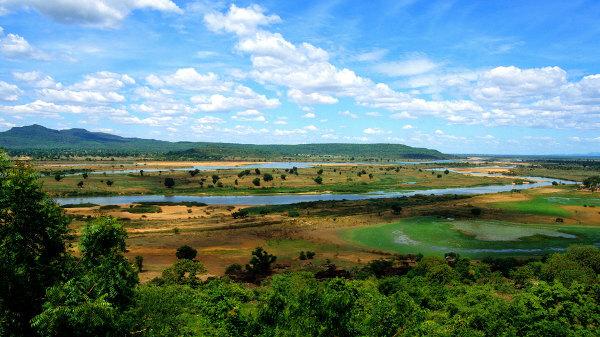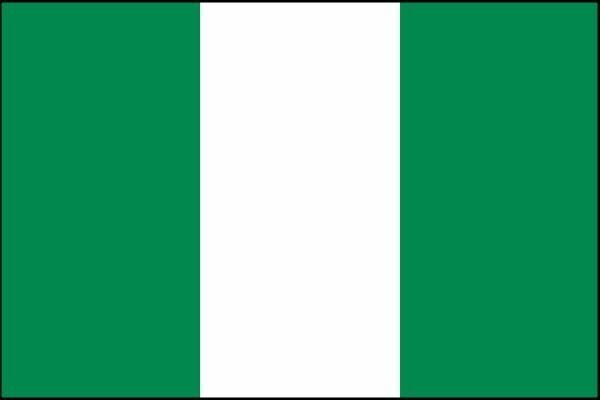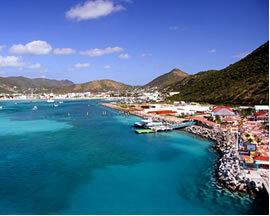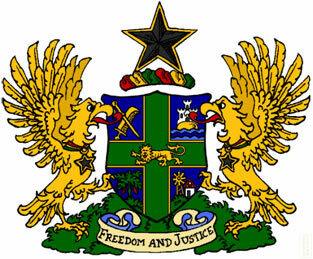THE Nigeria is an African country located in the West Africa region. It is the most populous nation on the continent, with more than 206 million inhabitants. The Nigerian population is made up of diverse ethnic groups and has enormous linguistic diversity. the country is rich in natural resources, of which oil and natural gas stand out. Oil constitutes its main export product, placing Nigeria among OPEC members.
Read too: What are the countries in Africa?
Nigeria general data
- Nameofficial: Federal Republic of Nigeria
- Gentile: Nigerian
- Extensionterritorial: 923,768 km²
- Location: Western Africa
- capital: Abuja
- Climate: Semiarid, Tropical and Equatorial
- Government: presidential federal republic
- Divisionadministrative: 36 states and a territory
- Language: english (official)
-
religions:
- Islam: 43.9%
- Protestantism: 16.5%
- Anglicanism: 11.3%
- Catholicism: 10.6%
- Other Christian Religions: 10.5%
- Traditional religions: 7.4%
- Other religions: 0.1%
- Non-religious and atheists: 0.3%
- Population: 206,140,000 inhabitants
- Demographic density: 226.3 inhab/km²
- Human Development Index (HDI): 0,539
- Coin: Naira (NGN)
- Gross Domestic Product (GDP): US$ 448.12 billion (World Bank, 2019)
- GDP per capita: US$ 2,229.85
- Gini: 0.351 (World Bank, 2018)
- Timezone: GMT +1 hour (West African Standard Time)
-
foreign relations:
- African Union (AU)
- UN
- WTO
- OPEC
- world Bank
- IMF
Do not stop now... There's more after the advertising ;)
Nigerian History
The first people to occupy Nigerian territory were the Nok, which initially established themselves in the north of the country and moved towards the central areas. This culture was well known for sculptures made in terracotta as well as the production of tools from iron.
In the period before the arrival of the Europeans, several empires formed in Nigeria, among which is the Empire of Benin, where the Portuguese arrived in the 15th century. In addition to commercial interests, people were trafficked to be enslaved in the Portuguese colonies. Nigeria became a British colony in the 19th century, when the British protectorates were created. The country won its definitive independence on October 1, 1960.
Read too: Resistance Movements to Neocolonialism in Africa
Nigeria Map

Nigeria geography
Nigeria is an African country located in the West Africa region. To the south, the country borders the Oatlantic ocean, thus belonging to the Gulf of Guinea. West of Nigeria is Benin; to the north, the country borders the Niger; to the northeast, in a narrow band, it divides with the Chad; and, to the east, with Cameroon. Its territorial extension is 923,768 km², while its coastline extends for 853 km.
Nigeria's climate
Nigerian territory has at least four weather types, which are distributed in large latitudinal ranges, ranging from the wetter areas, in the south, to the drier portions, in the north of the country.
O tropical weather it is predominant in central Nigeria, characterized by high temperatures throughout the year and a long rainy season. The south is marked by the equatorial climate, with high relative humidity, temperatures that vary between 20º C and 33º C and the highest levels of rainfall in the country, especially in the Southeast region.
In northern and northeastern Nigeria, semiarid and arid climate, in which the rainy season is short, about four months, and the average rainfall is around 500 mm.
Nigeria relief
The relief consists ofplains in coastal areas and also on the northeast edge of Nigeria. Youplateaus and hills predominate in the center of the territory, where the relief is relatively more rugged.
At mountains are concentrated in the southeast region of the country, on its border with Cameroon. The highest peak in Nigeria is located in this region, Mount Chappal Waddi, which rises to 2419 meters. In the rest of the country, the average altitude is 380 meters.
Vegetation of Nigeria
Following the pattern of climatic distribution, Nigeria's vegetation cover is divided into latitudinal bands as follows: Mangroves and Swamps to the south, on the coastal strip, with Tropical florests soon after, and vegetation of sadvance from the center to the north of the country.
Nigeria Hydrography
Nigeria's main rivers are the Niger, one of the largest rivers on the African continent, and the river Benue. In addition to them, the Sokoto, Kaduna and Gonga rivers stand out, which flow into Lake Chad, in the center of the Africa.

Nigeria Demographics
Nigeria is the country with the highest population concentration in Africa. According to UN information, the Nigerian population is 206,140,000, placing the country in the position of the seventh most populous in the world.
Nigeria's urbanization rate is 51.2%. Lagos, once the capital city, is the most populous, with more than 13 million inhabitants. The current capital, Abuja, has around 3.1 million inhabitants. Both data take into account the urban agglomeration.

The Nigerian population currently consists of more than 250 ethnic groups. Those that concentrate the largest number of people are: Hausa, Yoruba, Igbo, Fulani, Tiv, Kanuri, Ibibio and Ijaw. The country thus has enormous linguistic diversity, with more than 500 languages spoken in addition to English, the official language.
Nigeria has high population growth rate (2.6%), which is due to its high birth rate. Life expectancy in the country is low, at 54.2 years.
See too: What are the most populous countries in the world?
Nigeria Economy
Member of the Organization of Petroleum Exporting Countries (OPEC), Nigeria is the 11th largest oil producer in the world. This raw material accounts for the largest share of the country's exports, and the oil and natural gas sector represents a share of 10% of its GDP, according to OPEC. In addition to oil and natural gas, Nigeria holds other natural resources, such as iron ore, tin, coal, zinc, niobium, limestone and lead.
Despite that, agriculture, which corresponds to 21.1% of GDP, is the sector of the economy that concentrates most of the workforce. The products from agriculture are corn, oil palm, cassava, sweet potatoes, yams, rice, sorghum, in addition to fruit. The industry focuses on the extractive sector (which also includes wood and rubber), and in the production of food, footwear, fabrics, leather, skins and chemical products.
Nigeria has a share of 40% of its population living below the poverty line. This reflects directly on your HDI, which is currently 0.539, which is considered average.
flag of nigeria

Nigerian Culture
Nigerian cultural diversity is closely related to its population composition, formed by different ethnic groups that have their own internal traditions and customs.
One of the biggest of them, the Yoruba, in addition to the language and cultural manifestations (such as dance and their costumes typical), are recognized for their wide and rich mythology as well as for their religious beliefs, one of them based on the cult of Orishas.
Generally speaking, music is an important form of cultural expression in the country, which also stands out in the audiovisual sector with its film industry. Moving on to gastronomy, one of the typical dishes is asaro, a soup made with yam and pepper.
Nigeria Infrastructure
Nigeria's energy matrix is mostly composed of fossil fuels and by hydroelectric power. 2019 data indicate that 62% of the country's population have access to electricity, with the majority in urban areas.
O access to safe drinking water, in turn, is much lower, especially when comparing urban and rural populations: 24.6% versus 15.7%. Safe sanitation networks also reach less than a third of the urban population (29.5%) and 23.9% of the country's rural population, according to UN data.
Nigeria has an extensive waterway network of 8500 km, the main waterways being the Niger and Benue rivers. The highways add up to more than 195,000 km, surpassing rail transport, which has a network of less than 4,000 km. The country also has 54 airports.
Nigerian government
Nigeria is a presidential federative republic, being the president elected by direct vote. Nigeria's Legislative Power is exercised by the Bicameral National Assembly, composed of the House of Representatives and the Senate.
Fun Facts About Nigeria

- the terrorist group Boko Haram emerged in Nigeria in 2002. Her actions were highlighted in the international media in 2014, with the kidnapping of 276 women. The group also claimed the kidnapping of 300 Nigerian students in December 2020.
- Nigeria has one of the largest film industries in the world, known as Nollywood. Its production is second only to the United States (Hollywood) and India (Bollywood).
- Two locations are considered World Heritage by UNESCO: the Cultural Landscape of Sukur, in the northwest of the country, and the Forest Sacred of Oshun-Oxobô (Ọṣun-Oṣogbo, in Yoruba), known as Temple of Oshun, in the state of the same name in the southwest region of Nigeria.
Image credit
[1] Tayvay / Shutterstock
By Paloma Guitarrara
Geography teacher


